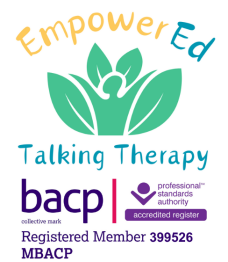
Core Beliefs in CBT
Core beliefs are most commonly formed at a young age as a result of early childhood experiences though new ones can also arise in adulthood (Kennerley et al., 2016, p. 10). The fact that these core beliefs can be altered and/or unlearned is important for longer-term CBT which often aims to address those that are dysfunctional for clients. Core beliefs inform the way a person sees themselves, others, the world around them and their future (J. S. Beck & Beck, 2020, pp. 283–287). A person will have many core beliefs and whether or not they are influencing an individual’s ability to function adaptably will depend on the present environment and any precipitants (also known as critical incidents) a person may have encountered. When activated, the core belief holds power over the way information is processed (Neenan & Dryden, 2020, p. 221) and any information that contradicts the core belief may be dismissed, distorted or discredited. Information that is perceived to be coherent with the belief on the other hand, or information that has been distorted such that it is now consistent, is more easily registered and regarded as evidence that the core belief is accurate.
A core belief is considered to be dysfunctional if, when activated, results in emotional and/or psychological distress, unhelpful behaviour and prevents a person achieving their goals. It is these types of core beliefs that are of particular interest to a cognitive behavioural therapist as they help formulate an hypothesis as to the cause, when combined with precipitating factors, of a client’s problems (Neenan & Dryden, 2020, p. 23).
Being so ingrained and ‘often seem[ing] to be part of a person’s identity’ (Reeves, 2018, p. 82) means that core beliefs are particularly resistant to change. Core beliefs can come to light in short-term CBT, however they are not usually addressed directly due to lack of time available. If clients continue to think and act differently over the longer term, this can have a ‘knock on’ effect on the influence and contents of core beliefs (Kennerley et al., 2016, p. 12).
Core beliefs can be distinguished from other types of cognitions as they tend to be more general and absolute statements (unlike automatic thoughts for example which are situation specific as described later). This also means that core beliefs are more obscure and harder to identify, instead they usually are inferred from analysing cognitions and behaviour across multiple situations or by prompting deeper reflection from the client.
References
Beck, J. S., & Beck, A. T. (2020). Cognitive Behavior Therapy: Basics and Beyond (3rd Edition). Guilford Press.
Kennerley, H., Kirk, J., & Westbrook, D. (2016). An Introduction to Cognitive Behaviour Therapy: Skills and Applications (Kindle (Third Edition)). SAGE Publications Ltd.
Neenan, M., & Dryden, W. (2020). Cognitive Behaviour Therapy: 100 Key Points and Techniques (Kindle 3rd Edition). Routledge.
Reeves, A. (2018). An introduction to counselling and psychotherapy: From theory to practice (Second Updated Edition). SAGE Publications Ltd.
An overview of core belief in CBT for other practitioners.
We need your consent to load the translations
We use a third-party service to translate the website content that may collect data about your activity. Please review the details and accept the service to view the translations.

